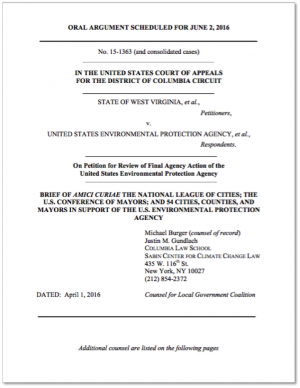 Jessica Wentz
Jessica Wentz
Associate Director and Fellow
Yesterday, the Bureau of Ocean and Energy Management (BOEM) released the Draft Programmatic Environmental Impact Statement (DPEIS) for the 2017-2022 Outer Continental Shelf (OCS) Oil and Gas Leasing Program. The DPEIS accounts for the impacts of climate change on program activities. It does not, however, contain any discussion of downstream emissions from the transportation, processing, or end use of the produced fuels. Nor does it assign an economic value to the emissions that it does evaluate (which are limited to emissions from exploration and production activities). As noted in previous blog posts, federal courts have required agencies to use the Social Cost of Carbon and to evaluate downstream emissions when reviewing environmental impacts of coal development. Which raises the question—why not oil and gas?
We submitted a comment letter last year on the scope of climate change-related considerations that should be addressed in its environmental review of the 2017-2022 OCS Leasing Program. In that letter we urged the agency to consider the impact of oil and gas development on greenhouse gas emissions from “downstream” activities, such as the transportation, processing and end-use of the produced fuels. We also urged the agency to use to the Social Cost of Carbon to assign a value to greenhouse gas emissions in its cost-benefit analysis, and to evaluate how climate change may affect OCS operations. We intend to submit additional comments on the DPEIS, reminding BOEM of its legal obligation to consider downstream emissions and the cost of emissions. The comment deadline is May 2, 2016. Additional information about how to comment on the DPEIS is available here.
Regarding the scope of greenhouse gas emissions that should be included in environmental reviews – Sabin Center Executive Director Michael Burger and I take an in-depth look at this issue in a new working paper, Downstream and Upstream Greenhouse Gas Emissions: The Proper Scope of NEPA Review, available on our website and SSRN. There, we argue that federal agencies should account for both upstream and downstream emissions when reviewing the environmental impacts of fossil fuel extraction and infrastructure proposals, since these emissions qualify as “indirect effects” within the meaning of NEPA. The consideration of such emissions is important, because it can dramatically alter the balance of costs and benefits of a proposed project and an agency’s ability to justify the approval of the project in light of that balance. It can also influence broad, programmatic decisions about public lands management, energy infrastructure, and transportation networks.




